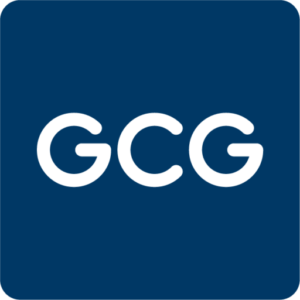
GCG Leadership Development Team
Effective leadership coaching is critical for driving innovation, employee engagement, and growth in today’s complex business landscape. As a manager, it’s essential to make informed decisions when selecting leaders for coaching engagements, ensuring that the investment in their development yields worthwhile returns with sustainable results. We will offer a comprehensive, step-by-step guide for managers to evaluate leaders’ readiness for coaching based on principles of Triple Win Leadership Coaching of Global Coach Group (GCG). Additionally, we provide insights on maximizing the impact of coaching on your leaders, teams, and the entire organization.
Characteristics of Leaders Ready for Coaching:
A leader well-suited for coaching should possess a variety of essential characteristics. As a manager, you must evaluate whether the leader demonstrates these traits.
- Openness to Change: Leaders must be receptive to embracing change and recognizing areas where improvement is needed. This mindset demonstrates a commitment to personal and professional growth.
- Collaborative Spirit: Effective leaders value collaboration, actively seeking and prioritizing input from their coworkers. A collaborative mindset helps ensure Triple Win outcomes, fostering an environment of shared development.
- Responsiveness to Feedforward: Leaders should be future-oriented, focusing on feedforward suggestions from coworkers as a means for continuous improvement. This approach highlights the leader’s dedication to making positive, actionable change.
- Accountability: Responsible leaders with a strong sense of accountability create a solid foundation for successful coaching engagements.
Managerial Considerations When Investing in Coaching:
To maximize the effectiveness of coaching, managers must consider several factors:
- Alignment of Coaching Goals with Organizational Objectives: Coaching objectives should align with your organization’s objectives, ensuring a strong connection between leadership development, team performance, and business outcomes.
- Involvement of Coworkers: Coworkers should play an active role in the coaching process to encourage open communication, boost team cohesion, and enhance performance.
- Monitoring Progress: Regularly reviewing the coaching progress ensures success in meeting objectives, enabling necessary adjustments along the way.
- Sustained Support Post-Coaching: Continued support and access to resources are crucial for maintaining the success achieved through coaching.
Diving Deeper into the Coaching Process:
To prepare leaders for coaching, it’s important for every manager to understand several essential elements of the coach’s role in the engagement:
- Establishing Goals: Coaches work closely with the leader and their team to create clear and attainable objectives. These goals should be well-defined, measurable, and directly linked to specific business outcomes.
- Developing an Action Plan: Collaborate with the leader to design an action plan that addresses their identified areas for improvement, with targeted steps to achieve these objectives. This plan should be tailored to their unique needs and strengths.
- Ongoing Evaluation: Implementing regular evaluation sessions allows both the manager and the leader to assess the effectiveness of the coaching engagement in both the short and long term. This practice encourages the leader to maintain their momentum, while also providing valuable insights to help refine the coaching process.
- Post-Coaching Support: Managers should stay engaged with their leaders after the coaching engagement concludes, offering ongoing support, resources, and mentorship to sustain progress and maintain success.
Creating a Supportive Coaching Environment:
To ensure coaching success, managers should cultivate a supportive environment that encourages learning, growth, and collaboration:
- Open Communication: Foster a culture of open communication where all team members feel comfortable providing feedback, expressing concerns, and discussing challenges with one another.
- Peer Coaching and Mentorship: Encourage peer coaching and mentorship within the organization. Allowing team members to actively help one another develop and grow creates shared ownership, driving continuous learning and improvement.
- Continuous Learning: As a manager, stay up-to-date with industry best practices, new coaching methodologies, and innovative approaches to leadership development. Equipped with the latest knowledge, you can consistently drive excellence and growth within your organization.
In Summary
Effectively selecting leaders for coaching requires foresight, knowledge, and a commitment to fostering long-lasting results. By implementing Triple Win Leadership Coaching, managers play a pivotal role in ensuring successful coaching journeys, creating better leaders, better teams, and better organizational results.
Looking for a top tier leadership coaching organization? Global Coach Group (GCG) is the preferred option for hundreds of organizations from SMBs to Fortune 500s.Our network of over 4,000+ experienced coaches is dedicated to delivering tailored leadership coaching to help leaders become more self-aware, improve their communication strategies, and ultimately drive better team performance.
For leaders who want to become coaches or coaches looking to enhance their leadership coaching skills, Global Coach Group (GCG) provides a comprehensive leadership coaching certification program. GCG’s internationally acclaimed coaching tools and resources can help you improve your coaching proficiency and empower you to guide others.

GCG Leadership Development Team
Learn about the GCG's Coaching Tools
Measurable results, in LESS Time.
Reduce your session prep and follow-ups to just 15 minutes, while delivering coaching that improves leadership, team and business performances with 95% coworker satisfaction
